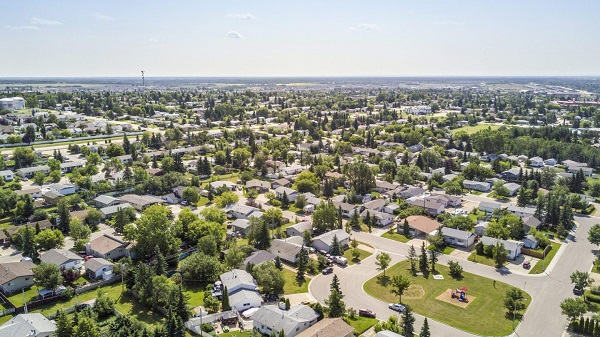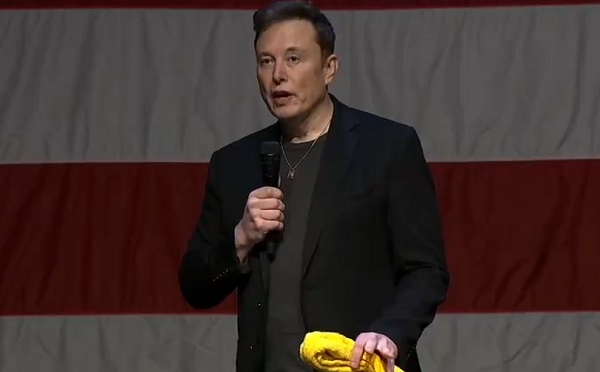Alberta
CP Holiday Train family event in Blackfalds this Sunday!

CP Holiday Train set for stop in Blackfalds
The CP Holiday Train, which raises food and funds for local food banks across Canada, is back for its 20th year. This year, it will arrive in Blackfalds on Sunday December 9 at 12:45 pm for a free concert with Terri Clark, Sierra Noble and Kelly Prescott. The train will stop at Gregg St between Broadway and East Avenues and will perform just beside Tayles Water Spray Park. We encourage people to arrive early.
Who: Terri Clark, Sierra Noble and Kelly Prescott will perform
What: CP Holiday Train arrives in Blackfalds
Where: Gregg St between Broadway and East Avenues
When: Sunday, December 9, 2018 at 12:45 pm
Why: At each stop, CP hosts a free event with music, entertainment, lights etc. They simply ask attendees to donate money or food to their community food banks.
Gregg St from Broadway Ave to East Ave will be closed from 11:00 am to 3:00 pm. The Railway crossing on Broadway Ave will be closed from approx. 12:30 pm to 1:30 pm.
The CP Holiday Train encourages donations of non-perishable food items & cash for the Blackfalds Food Bank. Donations to the Blackfalds Food Bank will be accepted at the drop-off locations at Tayles Park.
Please plan to arrive early & walk if possible, as nearby parking will be limited.
Follow the Train on social media and post your experience Instagram @cpholidaytrain, #cpholidaytrain @blackfalds
For further details visit the Town website at blackfalds.com.
 Terri Clark
Terri Clark
?Hailing from Medicine Hat, Alberta, Canada, Terri Clark got her start by playing for tips at Tootsie’s Orchid Lounge, a legendary honky-tonk bar across the alley from Nashville’s historic Ryman Auditorium. The 3-time JUNO Award winner holds the honor of being the only Canadian female member of the legendary Grand Ole Opry. Terri has received 19 CCMA Awards and is the newest member of the Canadian Country Music Hall of Fame.
“I had such a wonderful time on the US leg of the CP Holiday Train last year, and I’m so excited for this experience again, across my home country of Canada. Seeing the smiling faces, holiday spirit, and people giving back to their own communities is an amazing thing to be a part of and witness.”
 Sierra Noble
Sierra Noble
?Winnipeg singer-songwriter Sierra Noble has been a part of the Canadian music scene since a very young age, beginning her touring career when she was only 14 years old as a solo Old-time fiddle player. Her evolution as an artist brought her to a journey of singing and songwriting debuted by a song called “Possibility” which went on to be featured on television shows such as “One Tree Hill” and “Switched at Birth”. She credits that song to be what opened the door to her opening for international legends Bon Jovi and Paul McCartney.
“I am beyond excited to be a part of the 20th anniversary CP Holiday Train! Come join us with your friends, family, and food bank donations while we warm our hearts together through song in the cold chill of winter!”
 Kelly Prescott
Kelly Prescott
?Celebrating a long lineage of a very musically inclined family, the third-generation singer grew up in an award-winning studio where she was able to hone her craft of song writing. Penning such fan favourites as ‘Carryin’ Coal’ and ‘Coming Home To You (ft. Buddy Miller)’, her new music expands on her talent and unique vocals to reveal tracks like ‘Who Gets The Church’ and ‘Leavin’ Her’, which was released worldwide June 8th.
“I’ve had the honour of being a part of the CP Holiday Train for many years, yet this never gets old. In fact, it becomes more magical every year. To see firsthand the difference this program makes in each community is nothing short of incredible.”
Alberta
REPORT: Alberta municipalities hit with $37 million carbon tax tab in 2023

Grande Prairie. Getty Images photo
From the Canadian Energy Centre
Federal cash grab driving costs for local governments, driving up property taxes
New data shows the painful economic impact of the federal carbon tax on municipalities.
Municipalities in Alberta paid out more than $37 million in federal carbon taxes in 2023, based on a recent survey commissioned by Alberta Municipal Affairs, with data provided to the Canadian Energy Centre.
About $760,000 of that came from the City of Grande Prairie. In a statement, Mayor Jackie Clayton said “if the carbon tax were removed, City property taxes could be reduced by 0.6 per cent, providing direct financial relief to residents and businesses in Grande Prairie.”
Conducted in October, the survey asked municipal districts, towns and cities in Alberta to disclose the amount of carbon tax paid out for the heating and electrifying of municipal assets and fuel for fleet vehicles.
With these funds, Alberta municipalities could have hired 7,789 high school students at $15 per hour last year with the amount paid to Ottawa.
The cost on municipalities includes:
Lloydminster: $422,248
Calgary: $1,230,300 (estimate)
Medicine Hat: $876,237
Lethbridge: $1,398,000 (estimate)
Grande Prairie: $757,562
Crowsnest Pass: $71,100
Red Deer: $1,495,945
Bonnyville: $19,484
Hinton: $66,829
Several municipalities also noted substantial indirect costs from the carbon tax, including higher rates from vendors that serve the municipality – like gravel truck drivers and road repair providers – passing increased fuel prices onto local governments.
The rising price for materials and goods like traffic lights, steel, lumber and cement, due to higher transportation costs are also hitting the bottom line for local governments.
The City of Grande Prairie paid out $89 million in goods and services in 2023, and the indirect costs of the carbon tax “have had an inflationary impact on those expenses” in addition to the direct costs of the tax.
In her press conference announcing Alberta’s challenge to the federal carbon tax on Oct. 29, 2024, Premier Danielle Smith addressed the pressures the carbon tax places on municipal bottom lines.
“In 2023 alone, the City of Calgary could have hired an additional 112 police officers or firefighters for the amount they sent to Ottawa for the carbon tax,” she said.
In a statement issued on Oct. 7, 2024, Ontario Conservative MP Ryan Williams, shadow minister for international trade, said this issue is nationwide.
“In Belleville, Ontario, the impact of the carbon tax is particularly notable. The city faces an extra $410,000 annually in costs – a burden that directly translates to an increase of 0.37 per cent on residents’ property tax bills.”
There is no rebate yet provided on retail carbon pricing for towns, cities and counties.
In October, the council in Belleville passed a motion asking the federal government to return in full all carbon taxes paid by municipalities in Canada.
The unaltered reproduction of this content is free of charge with attribution to the Canadian Energy Centre.
Alberta
MAiD In Alberta: Province surveying Albertans about assisted suicide policies

Alberta’s government is launching a public engagement to gather input about legislation and policies around assisted suicide, also referred to as medical assistance in dying (MAID).
Medical assistance in dying is a process that allows an eligible person to receive assistance from a medical practitioner in ending their life. To be found eligible, a person must be suffering from a serious and permanent medical condition.
Alberta’s government is reviewing how MAID is regulated to ensure there is a consistent process as well as oversight that protects vulnerable Albertans, specifically those living with disabilities or suffering from mental health challenges. An online survey is now open for Albertans to share their views and experiences with MAID until Dec. 20.
“We recognize that medical assistance in dying is a very complex and often personal issue and is an important, sensitive and emotional matter for patients and their families. It is important to ensure this process has the necessary supports to protect the most vulnerable. I encourage Albertans who have experience with and opinions on MAID to take this survey.”
In addition to the online survey, Alberta’s government will also be engaging directly with academics, medical associations, public bodies, religious organizations, regulatory bodies, advocacy groups and others that have an interest in and/or working relationship to the MAID process, health care, disabilities and mental health care.
Feedback gathered through this process will help inform the Alberta government’s planning and policy decision making, including potential legislative changes regarding MAID in Alberta.
“Our government has been clear that we do not support the provision of medically assisted suicide for vulnerable Albertans facing mental illness as their primary purpose for seeking their own death. Instead, our goal is to build a continuum of care where vulnerable Albertans can live in long-term health and fulfilment. We look forward to the feedback of Albertans as we proceed with this important issue.”
“As MAID is a federally legislated and regulated program that touches the lives of many Albertans, our priority is to ensure we have robust safeguards to protect vulnerable individuals. Albertans’ insights will be essential in developing thoughtful policies on this complex issue.”
The federal Criminal Code sets out the MAID eligibility criteria, procedural safeguards and reporting obligations. The federal government has paused MAID eligibility for individuals with a mental illness as their sole underlying medical condition until March 2027 to ensure the provincial health care systems have processes and supports in place. Alberta’s government does not support expanding MAID eligibility to include those facing depression or mental illness and continues to call on the federal government to end this policy altogether.
Related information
-

 Brownstone Institute17 hours ago
Brownstone Institute17 hours agoThe Most Devastating Report So Far
-

 Economy1 day ago
Economy1 day agoCOP 29 leaders demand over a $1 trillion a year in climate reparations from ‘wealthy’ nations. They don’t deserve a nickel.
-

 Censorship Industrial Complex21 hours ago
Censorship Industrial Complex21 hours agoAnother Mass Grave?
-

 ESG4 hours ago
ESG4 hours agoCan’t afford Rent? Groceries for your kids? Trudeau says suck it up and pay the tax!
-

 Alberta20 hours ago
Alberta20 hours agoMAiD In Alberta: Province surveying Albertans about assisted suicide policies
-

 Alberta1 day ago
Alberta1 day agoOn gender, Alberta is following the science
-

 Energy1 day ago
Energy1 day agoOttawa’s proposed emission cap lacks any solid scientific or economic rationale
-

 International5 hours ago
International5 hours agoElon Musk praises families on X: ‘We should teach fear of childlessness,’ not pregnancy

